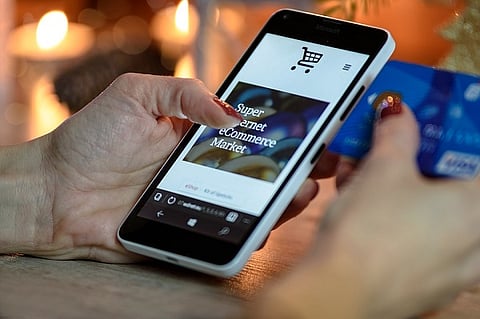

American wholesale retailer Costco owes its success story to its private label Kirkland, which was introduced in 1995. And ever since, Costco has banked on this to build a brand value and a reputation of good quality for a low price. Since then, it has introduced several brands of men’s shirts, toilet paper, milk and more. According to a Wall Street Journal (WSJ) report, a quarter of Costco’s annual sales come from Kirkland Signature products.
And now, ecommerce companies are doing the same. After nearly seven years of driving sales and consumer interest through deep discounts and attractive offers, players such as Flipkart, Amazon, ShopClues and Myntra are also launching private labels.
Flipkart launched SmartBuy, its in-house brand for electronics and electronic accessories, Perfect Homes for furniture, MarQ for large appliances and Billion – a made in India brand. Myntra owns brands such as Roadster, Mast&Harbour and HRX. ShopClues has Mia for fashion, Baton in men’s fashion, Digimate in electronic accessories, Homeberry for home brands and more.
These products are available on the marketplace along with all the other brands that are sold on the platform.
Filling a need gap
According to a Flipkart spokesperson, the reason why it launched private labels was to fill a need gap. “We realised that in many categories, there was a huge need gap that customers had. The core objective is to fill that need gap. Through private labels, we are mainly driving two things – affordability and quality. We have seen that there is less quality, products aren’t affordable and to buy affordable products, consumers are having to compromise on quality. We decided to launch a private label to address both these parameters,” the spokesperson says.
ShopClues has a similar reasoning. “We have a lot of data on what the consumers are looking for and what their needs are. We want to be able to utilize this data appropriately and take it on and exclusive labels are a result of that – the data we have about the consumers and products,” Radhika Aggarwal, co-founder of Shopclues says.
The real story
But is it just about the consumers? Apparently not.
Private labels are the best way for any marketplace to build a reputation, earn better margins and drive profitability. In India too, retailers such as Shoppers’ Stop, Future Retail (Big Bazaar), DMart, Reliance Retail have come up with their own brands, or exclusive brands, be it for clothes, grocery or electronics.
According to Sanjay Jesrani of NorthWest Ventures, it is the one strategy that will get them profitable. “I believe that this is a very smart strategy they are adopting.
“With the amount of data they have, on pricing and demand, they will gradually be able to arrive at a high market-driven product demand and pricing scenario. Having brought customers onto the platform with discounts and keeping them hooked onto the platform, the only way to drive profitability is to gradually introduce their own private labels,” he adds.
In fact, in an interaction with Mint, Myntra CEO Ana nth Narayanan said that instead of increasing spending only on marketing and discounts, Myntra decided to invest more in technology and brands. This he believes will help Myntra build moats and more importantly, improve the bottom line. Myntra’s private labels currently make up around 25% of its sales.
Another huge advantage private labels have, according to Murali N Bukkapatnam, president of TiE Hyderabad, is the cost of bringing it to the market.
“Whenever you go after a brand, there is a licensing fee, quality cost and marketing cost involved. Whereas, when you do private labelling, you don’t have all those costs. You have the independence of how you want to bring it to the market. The company procures it from the source, removing all the middleman, hence creating a super-efficient supply chain,” he adds.
After all, it’s all about the margins.
Ecommerce players have been chasing margins for a while now. Before launching private or exclusive labels, it was about chasing high-margin categories. Fashion and furniture, for example, are high margin categories. There was a time when Amazon, ShopClues, and most other ecommerce players were betting big on fashion. These are also some of the categories that first saw exclusive labels.
Ask Radhika Agarwal if exclusive labels will bring in better margins, “Better margins for us, better for merchants,” she says.
Compared to other products on the marketplace, private labels bring in at least 30% more margins for ecommerce players.
Recognizing this, ecommerce players are pushing private labels on their platforms. Flipkart says that SmartBuy is going to be 20% of overall electronic accessories category by the end of this financial year. MarQ too, will be 10% of the market. And on the back on the success of its private labels, Flipkart and ShopClues will be launching more private and exclusive labels.
“There will be ACs and washing machines coming up soon. The category has a lot more potential, also considering Flipkart has the added advantage of a dedicated supply chain for large appliances. I think we can crack the code in that category,” the Flipkart spokesperson says.
The scope is huge. All that these players need to do is to maintain the quality of the brand and convince the customer that their private label is as good, if not better, than the branded products available, and at a better price.
It is the only way for these ecommerce companies to come out of gross losses and the need to keep raising funds continuously. At no stage can any company afford to keep raising funds to survive. At some point, they have to be profitable, Sanjay says.